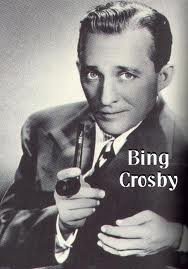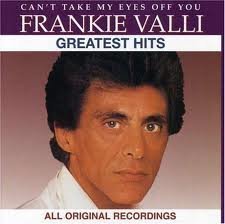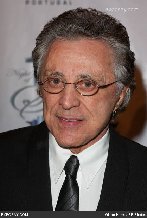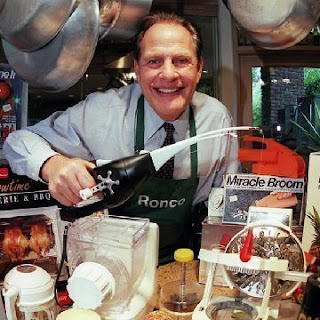Auto racing (also known as car racing, motor racing, or automobile racing) is a motorsport involving the racing of automobiles for competition.
Auto racing has existed since the invention of the automobile. Races of various sorts were organised, with the first recorded as early as 1867. Many of the earliest events were effectively reliability trials, aimed at proving these new machines were a practical mode of transport, but soon became an important way for automobile makers to demonstrate their machines. By the 1930s, specialist racing cars had developed.
There are now numerous different categories, each with different rules and regulations.
History
The first prearranged match race of two self-powered road vehicles over a prescribed route occurred at 4:30 A.M. on August 30, 1867, between Ashton-under-Lyne and Old Trafford, England, a distance of 8 mi. It was won by the carriage of Isaac Watt Boulton.
Internal combustion auto racing events began soon after the construction of the first successful gasoline-fueled automobiles. The first organized contest was on April 28, 1887, by the chief editor of Paris publication Le Vélocipède, Monsieur Fossier. It ran 1.2 mi. from Neuilly Bridge to the Bois de Boulogne.
On July 22,1894, the Parisian magazine Le Petit Journal organized what is considered to be the world's first motoring competition, from Paris to Rouen. One hundred and two competitors paid a 10-franc entrance fee.
The first American automobile race is generally held to be the Thanksgiving Day Chicago Times-Herald race of November 28, 1895. Press coverage of the event first aroused significant American interest in the automobile.
The Targa Florio was an open road endurance automobile race held in the mountains of Sicily, Italy near the island's capital of Palermo. Founded in 1906, it was the oldest sports car racing event, part of the World Sportscar Championship between 1955 and 1973.
With auto construction and racing dominated by France, the French automobile club ACF staged a number of major international races, usually from or to Paris, connecting with another major city, in France or elsewhere in Europe.
Aspendale Racecourse, in Australia, was the world's first purpose-built motor racing circuit, opening in January 1906. The pear-shaped track was close to a mile in length, with slightly banked curves and a gravel surface of crushed cement.
Brooklands, in Surrey, England, was the first purpose-built 'banked' motor racing venue, opening in June 1907. It featured a 2.75 mi. concrete track with high-speed banked corners.
One of the oldest existing purpose-built automobile racing circuits in the United States, still in use, is the 2.5-mile-long Indianapolis Motor Speedway in Speedway, Indiana. It is the largest capacity sports venue of any variety worldwide, with a top capacity of some 257,000+ seated spectators.
NASCAR was founded by Bill France Sr. on February 21, 1948, with the help of several other drivers of the time. The first NASCAR "Strictly Stock" race ever was held on June 19, 1949, at Daytona Beach, Florida, U.S..
From 1962, sports cars temporarily took a back seat to GT cars, with the Fédération Internationale de l'Automobile (FIA) replacing the World Championship for Sports Cars with the International Championship for GT Manufacturers.
From 1962 through 2003, NASCAR's premier series was called the Winston Cup Series, sponsored by R. J. Reynolds Tobacco Company cigarette brand Winston. The changes that resulted from RJR's involvement, as well as the reduction of the schedule from 56 to 34 races a year, established 1972 as the beginning of NASCAR's "modern era".
The IMSA GT Series evolved into the American Le Mans Series, which ran its first season in 1998. The European races eventually became the closely related European Le Mans Series, both of which mix prototypes and GTs.
Turismo Carretera (TC) is a popular touring car racing series in Argentina, and one of the oldest car racing series still active in the world. The first TC competition took place in 1931 with 12 races, each in a different province. Future Formula One star Juan Manuel Fangio (Chevrolet) won the 1940 and 1941 editions of the TC. It was during this time that the series' Chevrolet-Ford rivalry began, with Ford acquiring most of its historical victories.
If you want to read a lot more, go here: https://en.wikipedia.org/wiki/Auto_racing
National Teacher Appreciation Day, also known as National Teacher Day, recognizes dedicated educators across the country. As part of Teacher Appreciation Week, the celebration takes place on the Tuesday of the first full week in May each year.
The National Education Association describes National Teacher Day “as a day for honoring teachers and recognizing the lasting contributions they make to our lives.”
Teachers play a critical role in educating and shaping our children, the future leaders of our country. These kind, patient, hard-working, dedicated, and understanding professionals help mold our children and guide them in positive directions. We entrust our children with teachers, and they affect their lives daily.
No matter where we are in life, a teacher influenced us. They continue to impact our lives every day, too! When we meet new employees with a wealth of skills and abilities, a teacher helped shaped them. Every new business owner, doctor, engineer, or nurse can name a teacher who inspired them. Every one of us has at least one teacher in mind who encouraged and motivated us during our education.
HOW TO OBSERVE
It is time to say “Thank You” to the exceptional teachers you know. Take a moment and reflect on the teachers in your life. Who influenced your life? Who is making an impact today? Let teachers past and present know you value them. Let them know how they helped shape your future. You can also show your gratitude for your teachers in other ways:
- Refill their supplies. Many teachers stock their classrooms with the supplies they need to effectively teach.
- Write a letter showing your support. Your words may encourage a teacher to continue making a difference in a child’s life.
- Ask them what they need the most. Sometimes just being asked is the most important part.
- Volunteer in your schools. Every day, schools rely on parent support for many programs to succeed.
NATIONAL TEACHER APPRECIATION DAY HISTORY
Political and educational leaders began discussions for a day to honor teachers in 1944. In 1953, Eleanor Roosevelt persuaded the 81st Congress to proclaim National Teachers’ Day. Congress declared March 7, 1980, as National Teacher Day. The National Education Association continued to observe Teacher Day on the first Tuesday in March until 1985 when the National PTA established Teacher Appreciation Week as the first full week of May. The NEA Representative Assembly then voted to make the Tuesday of that week National Teacher Day.







_opening_lap.jpg)





